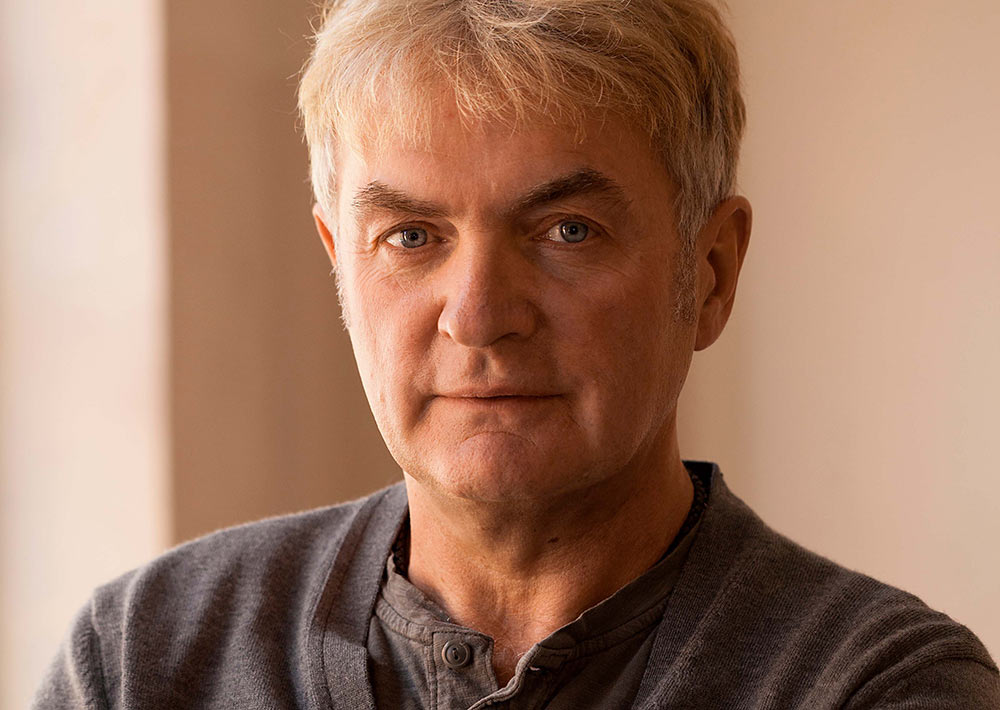
Kev Nixon: “It’s going to take some exceptional lyrical imagination to write a great song about scrolling on a mobile phone.”
Why music’s golden future may depend on rediscovering artistry, not algorithms – and breaking free from the grip of nostalgia economics
In Brilliant Sounding Rubbish, veteran musician and music industry insider Kev Nixon explores the decline – and possible redemption – of songwriting in the digital era. Drawing on five decades working with icons like Madonna and Bryan Adams, Nixon lays bare the economic, cultural, and technological forces that have devalued new music and left genuine songwriting on the sidelines.
In this extract, he examines how nostalgia-driven investment and the streaming economy have reshaped the landscape in 2025, turning legacy hits into financial assets while sidelining creativity. With clarity and provocation, Nixon asks: is songwriting now a relic – or can it rise again?
Discover 33 of the best books for songwriters
 For many decades, the rise in quality of songwriting rose roughly in parallel with the value of copyrights. In musical terms this meant that if Irving Berlin’s White Christmas was worth £10m in 1942, when the public went nuts for it in the Bing Crosby movie Holiday Inn, then you could reckon on Hey Jude being worth about £25m in 1968, when at 8m sales, it became The Beatles biggest selling single.
For many decades, the rise in quality of songwriting rose roughly in parallel with the value of copyrights. In musical terms this meant that if Irving Berlin’s White Christmas was worth £10m in 1942, when the public went nuts for it in the Bing Crosby movie Holiday Inn, then you could reckon on Hey Jude being worth about £25m in 1968, when at 8m sales, it became The Beatles biggest selling single.
But then around the year 2000, the arrival of digital music in the form of those cheeky little files called MP3s changed everything, and the value of songs and recordings reached an all-time low, when Prince’s new album, Planet Earth came as a free CD, stuck to the front of the Mail On Sunday newspaper. Fifteen years into the new century, as the public grew maybe a bit too comfortable with digital information being the accepted format of music, suddenly the music publishing industry dumped its denims for Ralph Lauren suits, and the world of financial investment twigged the low risk of evergreen hits. Ever since, the Wall Street Shuffle has become the theme song of the money markets.
So, what the hell caused such radical change?
Ironically, the answer is that Nostalgia became ‘the next big thing’ and at a stroke, songwriting as we knew it became redundant. The world fell back in love with its musical past, and the Greatest Hits mentality became the driver of the new Streaming platforms. Spotify, Apple and their lesser counterparts monopolized the route-to-market of the three major record labels and publishers – Universal, Sony & Warner (yes indeed, the same three companies own both the recordings and the songs). Ten years on, and we are drowning in an ocean of low-rent, unoriginal, laptop records, as the music business remains hellbent on making itself more and more difficult for young people to engage with.
The result is a musical traffic jam, so vast that right at this moment, sitting somewhere on Spotify, YouTube or TikTok is the next Hey Jude, but the chances of it reaching enough ears to make it worth even £50 are about as likely as Donald Trump passing his Eleven Plus.
In July 2024, Blackstone, one of the biggest players in the Netflix movie-like world of financial investment, bought out all other partners in the still fairly young music publisher/copyright land-grab-machine, Hipgnosis Song Management. By chucking a cool $1.584 billion dollars into the company that only recently bought the rights to the songs of Fleetwood Mac, John Coltrane, Neil Young, Leonard Cohen, Justin Bieber, Dorothy Fields and the Red Hot Chili Peppers to name but a few, it sent out a clear signal that fantastic music is worth a fortune, while simultaneously condemning new music to being worth sod-all.
Hipgnosis, now hilariously renamed Recognition Music Group (as though they could recognize a crotchet from a hatchet), is a surprisingly young company, founded in 2018. But in those seven years from dawn to date, they have not had one single hit with a new song by a new artist. They don’t hide the fact that they are in the business of buying and selling the crown jewels, as some the world’s greatest songs have become a commodity to be flogged around the money markets of the world. However, nobody seems to give a damn that there are almost no great new songs coming along, and of course that notion would never dawn on the Ralph Lauren boys anyway.
A few times in my fifty years in the global music business, I found myself working with some of these investment guys, and the key takeaway for me was the realization that they only make money when their funds are immersed in new deals that they, The Ralph Lorens themselves have executed. Which means that in a few short years from now, this fallow, Cowell-fed generation will look back on Spotify like Manchester United look back on winning the Premiership. But of course, they will be in shock when they can no longer find anything of creative value in which to invest their megatrons of dollars. The James Arthur catalogue maybe? Or how about the Sabrina Carpenter catalogue? Unlikely.
The principal reason why low standard songwriting has happened in the 2020s is because, alongside twenty years of old Botox-face Cowell killing the key elements of music stone dead with his cover-version clad TV game shows, there’s now a whole generation of young DIY artists out there, who play loops instead of guitars, and who are neglectfully unaware of what makes for greatness and sustainability in songwriting. Worse is that with an industry full of techies, there’s no one to teach them.
Lowering of standards in music is lowering life, and we must make space for great songwriting to return
Great songs naturally reflect the era in which they are written, and consequently, are often set in certain locations that are common to that era. For instance, Lerner and Loewe’s classic I Could Have Danced All Night from the 1956 smash My Fair Lady was smack bang in the era when virtually every guy met his future wife on the dancefloor. Similar in spirit, but as different as you could get, the whole rave/festival scene of the 1990s was observed so perfectly by Pulp’s masterpiece Sorted For E’s & Whizz, which was cleverly set in music festival locations. In my opinion, that was the best song of the entire nineties, and made itself the pinnacle of that golden Britpop era. In fact, it was so popular that prior to its release, it racked-up pre-orders of over 400k, yet according to Jarvis, Emily Eavis wasn’t interested in having them play at the OAP-fest that was Glastonbury 2025 [Pulp did actually play this year, appearing under the alias Patchwork].
But here’s the key question… what do today’s songwriters have to use as inspiration to reflect today’s society? The answer is that there’s now such a lack of community in the headphonic modern music business, leaving so little inspiration for writers, that it’s going to take some exceptional lyrical imagination to write a great song about scrolling on a mobile phone.
From a songwriting perspective, we live in a barren landscape of uninspiring individualism, which compared to the naturally rebellious youth of previous decades has left us without any sign of a subculture or underground movement from which to make objectionable, or even political noise. Modern songs are blunt weapons indeed.
These are the hard facts that have reduced the need for any kind of traditional songwriting. Today, the subscription-based music business generates more money than ever before, almost all of which comes from old songs, so who cares about new ones? Clearly, we don’t need them, or do we?
Blackstone didn’t pay $250m to Neil Young for the songs on his new album. They paid it to get the songs from Harvest and After The Goldrush, and his co-writes with Crosby, Stills and Nash. So now, with the old songs funding the opportunity to record new ones, where are the music publishers ready to guide new songwriters towards the skills and treasures from writers of past decades? If there are any left who actually give a damn, they certainly don’t work for Blackstone. The real problem we are dealing with here is that streaming makes such massive profit-without-overhead for the rights owners, the last thing they want is change. The attitude is unmistakably ‘sod the music, have a cigar’.
But there is still hope, and as recently as March 2024, a new album landed that contradicts all the problems highlighted here. It’s called **Deeper Well by Kacey Musgraves, and it is a work of utter brilliance, incredible simplicity, and enormous integrity. It also shows tremendous artist self-development by a naturally gifted songwriter, musician and singer who is forging ahead of almost every other songwriter of her era. In fact, it is my opinion that as a songwriter, Taylor Swift is aspiring to reach where Kacey Musgraves has already arrived.
Kacey came to my attention via an 18-year-old music student at DIME Denver, one of eight music colleges my wife Sarah and I built from 2001 to 2021. The student was a talented writer and singer herself, and we got talking about our mutual love of country music. She gave me a CD of Kacey singing her 2012 breakthrough song Merry Go Round from her first album Same Trailor Different Park.
Kacey was 23 when she wrote Merry Go Round, and it won the 2014 Grammy for Best Country Song at the 56th Grammy Awards. To add perspective, Paul McCartney was also 23 when he wrote Eleanor Rigby. The first three lines of the Merry Go Round lyric alone paint an exact image of how restrictive growing up in rural tradition mid-Texas can be, and her poetic pessimism turns into a triumph of awareness-without-salvation for the young female protagonist. In my opinion, this ranks alongside any lyrical opening salvo of any song in modern music. For anyone to write with such perfect imagery of small-town America is an extraordinary achievement, especially for one so young, and on her first single. For me, Kacey is the most articulate American songwriter since Paul Simon.
At the time, we were actually living in Denver, so Sarah and I went to Red Rocks to see Kacey live and she was better than we imagined. She didn’t give a damn, swore in between every song, and turned the show into an infectious party that spread around that whole incredible venue up in the Rocky Mountains. With each of her six studio albums, Kacey’s standards have forged ahead of her Nashville-based rivals, and she won her eighth Grammy at the 2025 event for her song The Architect. Now aged 36, Kacey is defying all the natural statistics of songwriters and getting better with age, something almost no one in music has ever achieved.
It’s vital that we stay true to exceptional talent, and that music remains art. Lowering of standards in music is lowering life, and we must make space for great songwriting to return. I for one believe that it can.































Related Articles